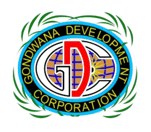"Gondeco: Engineering innovative solutions for underserved communities worldwide."
Gondwana Emergency Management Institute (GEMI)
Emergency response ,environmental disaster mitigation Public education in seismic safety , hazard preparedness Development of tribal disaster mitigation plans Temporary shelter and infrastructure damage assessments
CORE PROGRAMS & ACTIVITIES


Introduction to the Gondwana Emergency Management Institute
The Gondwana Emergency Management Institute (GEMI), also affectionately known as Gondeco-GEMI, plays a pivotal role in the field of emergency response and environmental disaster mitigation. With a focus on enhancing community resilience, GEMI is dedicated to equipping individuals, communities, and organizations with the necessary tools and knowledge to effectively prepare for and respond to potential disasters.
Core Programs and Activities of GEMI
At the heart of GEMI’s mission are several core programs designed to tackle the challenges posed by emergencies and environmental hazards. One of the primary activities is the focused training in emergency response, which ensures that individuals can act swiftly and efficiently when crises arise. GEMI also emphasizes environmental disaster mitigation, promoting strategies that minimize the impact of natural disasters on communities.
In addition to direct emergency response training, GEMI places a strong emphasis on public education in seismic safety and hazard preparedness. By educating the public about seismic risks and offering practical preparedness training, GEMI empowers communities to take proactive measures, thereby reducing vulnerability during such incidents. This educational approach complements their emergency response initiatives and fosters an informed citizenry.
Development of Tribal Disaster Mitigation Plans
A significant aspect of GEMI’s work is the development of tribal disaster mitigation plans. Understanding the unique needs and challenges faced by tribal communities, GEMI collaborates with these groups to create tailored disaster response strategies. This ensures that tribal populations are not only aware of the risks they face but also equipped with specific action plans that align with their cultural and community practices.
Moreover, GEMI conducts temporary shelter and infrastructure damage assessments in the wake of disasters. By assessing damage and evaluating the effectiveness of response measures, GEMI provides critical data that can help shape future preparedness initiatives and policy decisions. This feedback loop is essential for continuous improvement in emergency management practices.
Empower dilapidated communities through specialized services worldwide.
CONTACT
contact@gondeco.com
+1 (510) 387-2755
© 2024. All rights reserved.
124 Brenner Street, Hercules,California, 94547,
United States of America


